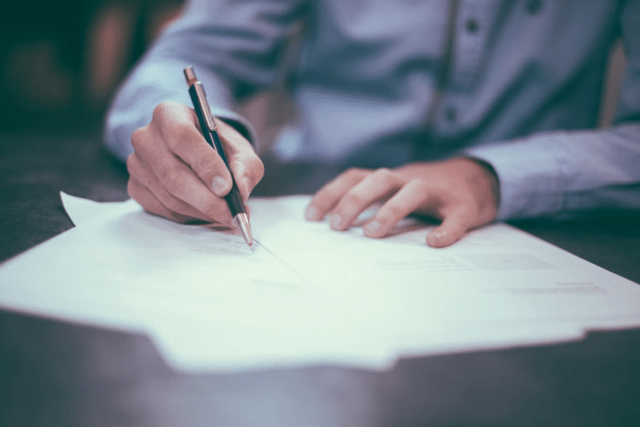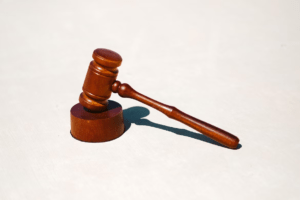
As a business owner, you must understand your responsibilities when it comes to premises liability. This guide will provide an overview of the legal obligations you must fulfill to protect yourself and your customers from potential accidents or injuries on your property. Through an understanding of the principles of premises liability, you can ensure that your business is legally compliant and able to respond effectively in case of any incident.
1. Duty of Care
As a business owner, it is your responsibility to provide and maintain a safe environment for your customers. This includes taking the necessary steps to prevent any potential accidents or injuries on your premises. Under the legal principle of premises liability, you are obligated to take reasonable care of anyone who enters your property. This obligation extends to all visitors, including customers, employees, contractors, and any other guests. This personal injury law firm, for example, notes that business owners must make sure the premises they own, lease, or manage are safe and without any hazards that could cause injury. It is important to note that the level of duty of care you owe will depend on the type of visitor.
2. Types of Visitors
Depending on the type of visitor who enters your property, the level of duty of care you owe them will vary. Generally speaking, visitors can be classified into three distinct categories: invitees, licensees, and trespassers. Invitees are individuals who enter your property for business purposes (e.g., customers). As an invitee, this individual has a reasonable expectation that their visit to your premises is safe and without any potential hazards. Licensees are individuals who enter your property with permission; however, they do not have any business purpose (e.g., friends or family).
The third type of visitor is the trespasser. A trespasser enters your property without permission and with no invitation or lawful right to be there; therefore, you are not obligated to take any reasonable steps to protect their safety.
3. Reasonable Care
What exactly constitutes reasonable care may vary depending on the specific circumstances; however, some common measures include inspecting the premises regularly, maintaining the property in a safe condition, warning customers of potential risks or dangers that are not immediately visible, and taking action to make sure any hazardous conditions are addressed. Additionally, you must keep accurate records of any incidents on your premises as this can be used as evidence should you ever be sued for negligence or premises liability.
4. Liability Insurance
It is recommended that business owners purchase liability insurance to protect against the costs of defending and settling claims related to accidents or injuries on their premises. This type of insurance will cover the cost of compensating victims for medical expenses, lost wages, pain and suffering, and other losses. Depending on the policy you obtain, it may also provide coverage for legal fees and sanctions imposed by government agencies due to violations of safety requirements. It is important to note that liability insurance is not a substitute for taking reasonable care when it comes to premises liability; however, it can provide some financial protection in the event of any incident.
5. Harassment and Discrimination
It is important to remember that, as the business owner, you are also responsible for providing a safe and respectful environment free of any harassment or discrimination. Harassment and discrimination can take many forms, including sexual harassment, racial slurs, gender-based insults, and more. It is important to remind your staff that this type of behavior will not be tolerated on your premises. Additionally, it is recommended that you establish a clear policy outlining what constitutes harassment or discrimination and have all employees sign off on it to ensure everyone understands their legal obligations.
Why is premises liability important?
Premises liability is an important legal concept that business owners must be aware of to protect themselves, their customers, and their employees. By taking reasonable steps to ensure the safety of visitors and establishing policies to prevent harassment or discrimination on their premises, they can minimize the chances of any incidents occurring and limit their potential legal liabilities. Additionally, obtaining appropriate liability insurance will provide some financial protection should any claims arise. Being proactive when it comes to premises liability will help ensure a safe and respectful environment for all who enter your business premises.
Can any business owner be liable for premises liability?
Yes, any business owner can potentially be held liable for accidents or injuries that occur on their premises. It is therefore important to take appropriate measures to ensure a safe environment and prevent potential risks or hazards from occurring. As the business owner, you are responsible for taking reasonable care so that visitors are not exposed to any unreasonable risks of harm. Additionally, obtaining liability insurance will help protect against any costs associated with defending or settling claims related to incidents on your property.
Being aware of your legal obligations and taking proactive steps is essential to properly manage premises liability and minimize your potential legal liabilities.
Is premises liability only applies to physical locations?
No, premises liability is not limited to physical locations. It can also apply in certain cases involving electronic or online activities, such as a business’s website or social media accounts. For example, if your website contains information that is misleading or inaccurate and results in injury to someone, you may be held liable for damages. Additionally, if an employee of your company posts something on social media that is deemed offensive or inappropriate, you may be responsible for any harm it causes. Therefore, it is important to ensure that all digital content associated with your business adheres to the standards of reasonable care and does not put visitors at risk of harm.

As we saw, premises liability is an important legal concept for business owners. It is essential to take proactive steps to ensure a safe environment and protect against any potential liabilities that may arise due to incidents on your property. This includes conducting regular premises inspections, taking action to address any hazardous conditions, maintaining accurate records of any incidents, and obtaining appropriate liability insurance. So, if you are a business owner, it is important to educate yourself on premises liability so that you can protect your customers, staff, and yourself from any potential liabilities. Good luck!


































